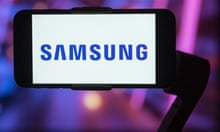Apple and Google are teaming up to thwart unwanted tracking through AirTags and similar gadgets.
The two companies behind the iPhone and the software that powers Android phones on Tuesday submitted a proposal to set standards for combatting secret surveillance on Bluetooth devices that were created to help people find lost keys, keep tabs on luggage or to locate other things that have a tendency to be misplaced.
The concept also has the backing of Samsung – which sells the most Android smartphones worldwide – and the makers of tracking products similar to the AirTag, such as Tile, Chipolo and Pebblebee.
The $30 AirTag has become a popular item since its 2021 release. But the devices have proven easy to abuse, with police reporting stalkers using them to shadow former love interests and other people who don’t realize they are being tracked.
“Bluetooth trackers have created tremendous user benefits, but they also bring the potential of unwanted tracking, which requires industrywide action to solve,” said Dave Burke, Google’s vice-president of engineering for Android.
Apple, too, has recognized the potential for the devices to be misused. The company has responded by introducing various features, including notifications that warn iPhone owners if a location tag that is not associated with their devices is traveling with them and an app to detect unwanted AirTag tracking for Android devices.
But Apple and Google now want to go further with a new industry standard that they say will help combat surveillance. The companies hope to have a plan in place by the end of this year. The solution, of which the two companies submitted a draft to the Internet Engineering Task Force (IETF), an organization that creates standards for the internet, would be distributed through software updates to iPhones and Android phones.
Erica Olsen, the senior director of National Network to End Domestic Violence’s Safety Net Project, applauded the effort to set an industry standard that she believes will help protect survivors of abusive relationships and other people that have been targets of stealth technology. “These new standards will minimize opportunities for abuse of this technology and decrease the burden on survivors in detecting unwanted trackers,” Olsen said.
The draft is open to comment from interested parties for the next three months, after which the two companies will work to address and incorporate feedback.







